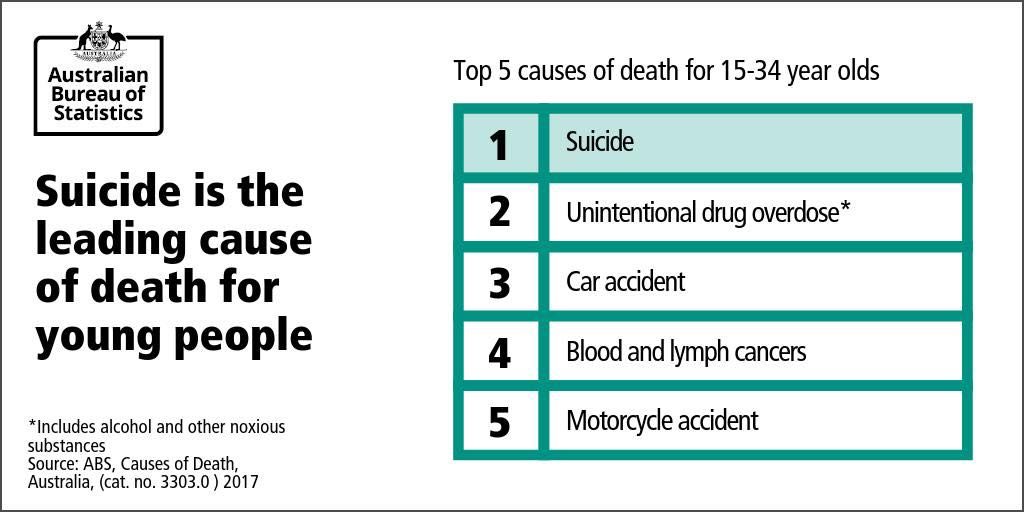2020 is a tough year, on the back of plenty of tough years for small business retailers.
Drought, bushfires, corona, these and other factors have been impacting communities and small businesses serving those communities.
Small business retailers, their employees and their customers are on the front line, impacted often all to regularly by the mental health challenge.
We think it is timely to pause for a moment in any business and consider how it approaches the issue of mental health, to ensure it has up to date information and leverages the appropriate practices in the business and with all team members.
Australian Bureau of Statistics figures reinforce why mental health is a 365 day a year challenge:
The stat for suicide among young people is horrifying.
While we are not mental health professionals, we have been in the software and retail businesses for many years and have had experiences working with and supporting people.
We share here today a revised version of information we have shared here before on this.
There are wonderful resources from government departments available. For example, The Victorian Government has a page online on this topic, which includes good practical advice, advice we remind our own team members of regularly:
- Make time to exercise each day: For example, a simple daily lunch time walk can help maintain a positive outlook.
- Practice mindfulness: Mindfulness means being aware of your reactions/feelings/thoughts as you have them. This helps you choose how to manage matters as they arise. Mindfulness is a great tool to help lower stress and anxiety levels.
- Adopt work/life boundaries: Don’t let work overtake your life. Set some boundaries to ensure you have time for both work and a social life. You might decide not to discuss work from 5pm Friday night to 8am Monday morning because weekends are for family time only.
- Connect with others: Find someone worthy of your stories – a confidant or mentor you can talk to about your business experiences. Make sure this person is supportive, a good listener and someone whose opinion you value.
This government website also lists indicators that are helpful for business owners and managers to be across:
- Physical signs: For example, a constant knot in your stomach, tense neck and shoulders, feeling nauseous, heart palpitations or chest pains.
- Changes in behaviour: For example, being unable to sleep, crying regularly, feeling moody or often irritable, increase or loss of appetite.
- Unclear thinking: For example, not being able to make decisions, not understanding directions, not being able to focus, being inattentive.
- Feeling sad or anxious regularly: We all have bad days – they’re a normal part of life. This flag needs attention if you begin to notice feeling like this regularly.
- Disconnecting from others: This may include not joining in social activities, choosing to spend time away from family and friends or stopping hobbies/sporting activities.
- Feeling overwhelmed: It is difficult to find solutions to problems, and in some instances it feels like they are insurmountable. Problem solving becomes difficult
There are links to some excellent resources too:
- Business In Mind: An online resource specifically designed to support business owners who may be experiencing mental health challenges.
- Beyond Blue: beyondblue provides information and support to help everyone in Australia achieve their best possible mental health, whatever their age and wherever they live.
- The Ripple Effect: A resource for rural communities that addresses suicide in rural areas.(Ph: 03 5551 8587)
- Sane provides online information, support and connection for every Australian affected by complex mental illness through its website, peer-to-peer forums and helpline. SANE also has a range of factsheets on managing mental health in the workplace. (Ph: 1800 18 7263)
Our approach to mental health as business owners has to be continuous, on-going. It can’t be a one day of the year focus or a stunt. It has to be part of how we run our businesses, everyday.
In our experience, talking is key – offering an environment where people can talk, where they know it is safe to talk, where they are encouraged to talk and where active listening happens. While it is not always perfect and does not always achieve what is hoped for, it is documented as being valuable.

